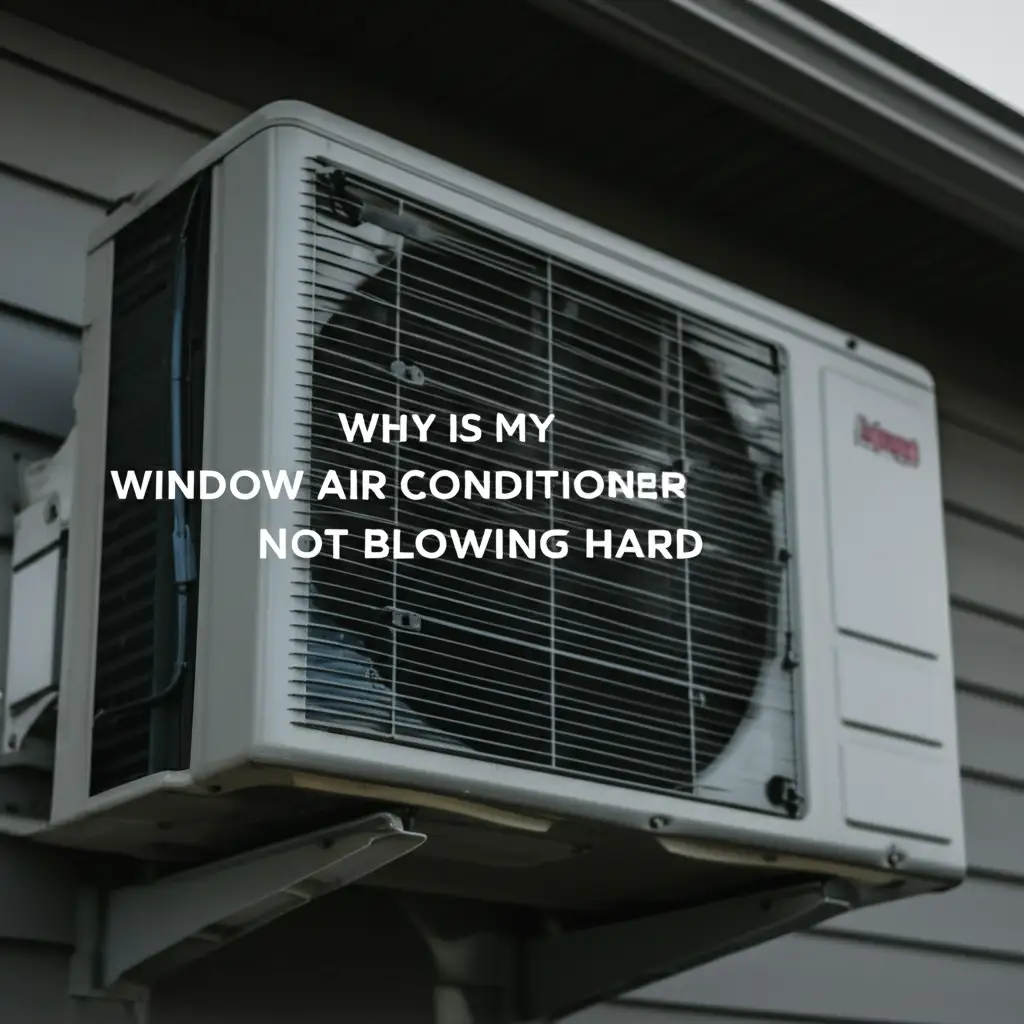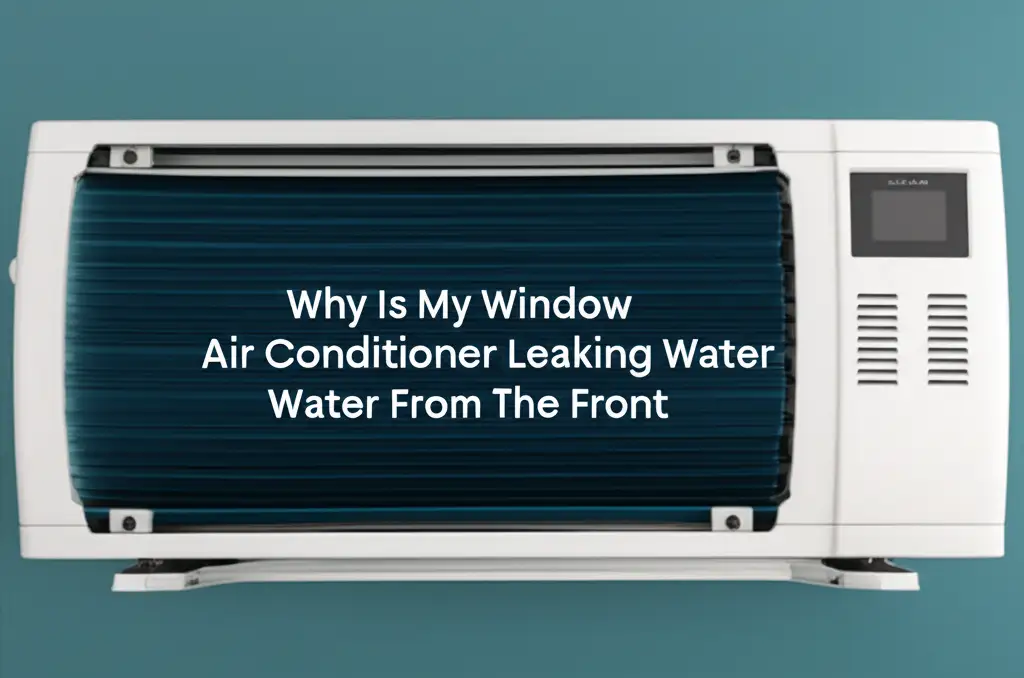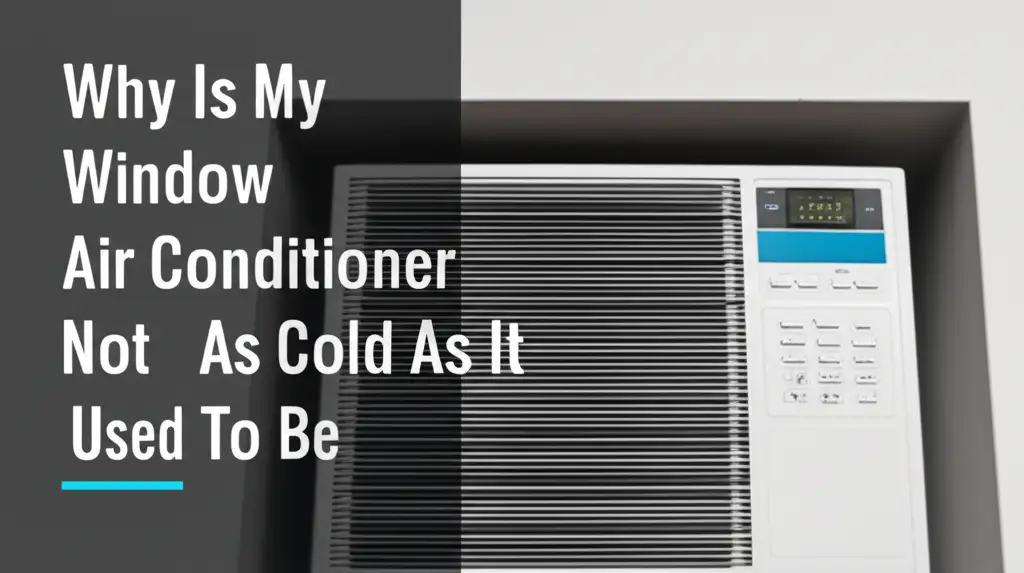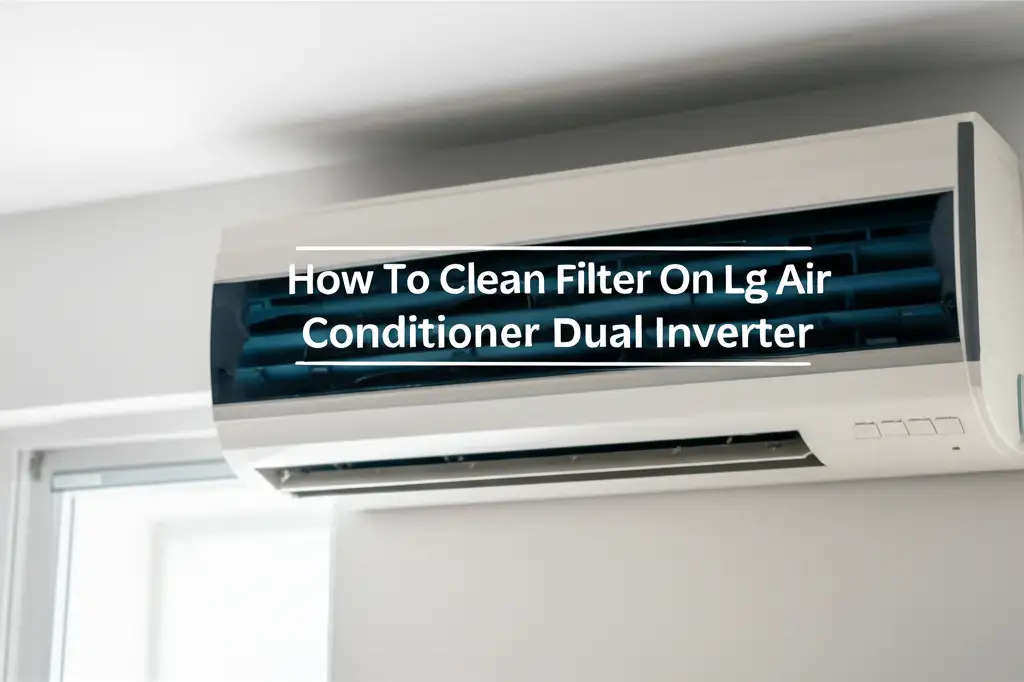· Katria Melrose · Home Appliances · 20 min read
Why Is My Central Air Conditioner So Loud
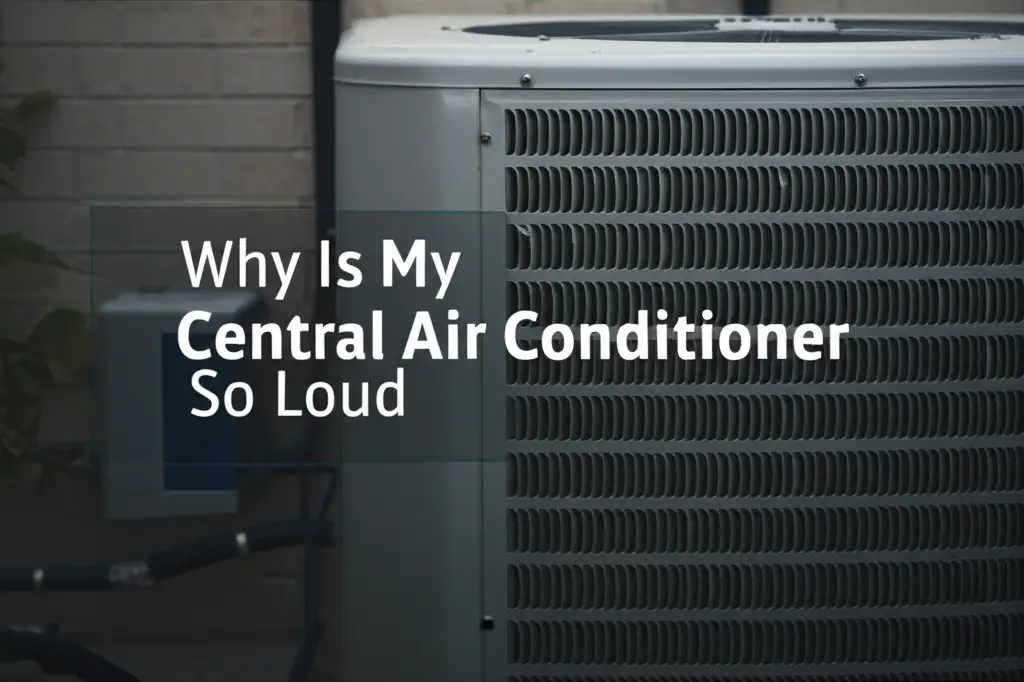
Stop the Noise: Why Your Central AC Is So Loud
Have you ever noticed your central air conditioner making strange, disruptive noises? A loud AC unit can be more than just annoying. It often signals underlying problems. These issues can range from simple maintenance needs to serious mechanical failures. Understanding these sounds helps you diagnose the problem early. Early action can prevent more costly repairs down the road.
I know how frustrating it feels when your home’s quiet comfort is broken by a noisy AC. This article explores common reasons why your central air conditioner is so loud. We will look at various noises your unit might make. We will also discuss what each sound means. You will learn steps you can take to address these issues. We will also cover when it is time to call a professional. Let us restore the peace and quiet to your home.
Takeaway
- Identify specific noises coming from your AC unit.
- Check for simple solutions like loose parts or debris.
- Perform routine maintenance, such as cleaning the unit and changing filters.
- Understand when a noise indicates a serious problem needing professional help.
- Regular servicing prevents many common AC noise issues.
Your central air conditioner makes loud noises because of various issues. These issues can include loose components, dirty parts, motor problems, or refrigerant leaks. Each distinct sound often points to a specific cause, such as rattling from debris, buzzing from electrical issues, or squealing from worn bearings. Addressing these causes promptly can prevent further damage.
Rattling and Clanking Sounds from Your Central AC
Rattling or clanking noises from your central air conditioner are common. These sounds often indicate something loose or trapped inside the unit. I have heard these sounds many times from outdoor condenser units. They can be quite alarming.
Loose Parts in the AC Unit
Your AC unit contains many parts. Screws, fan blades, or motor mounts can become loose over time. When these parts vibrate, they create a rattling sound. This noise is often more noticeable when the unit first starts or shuts down. A loose access panel or cover can also cause rattling. I always check these first.
Loose fan blades can also cause a rattling noise. If a fan blade is out of balance, it will hit against the fan cage or other components. This can create a distinct clanking sound. Continued operation with a loose fan blade can damage the motor. This is a serious issue that needs quick attention.
- Check the Unit’s Panels: Ensure all screws are tight on the outer panels of your condenser unit.
- Inspect Fan Blades: Carefully check the outdoor fan blades for any looseness. Do this only when the power is off.
- Look for Debris: Small twigs, leaves, or even toys can get sucked into the outdoor unit. These can rattle around as the fan spins.
If you find small debris, turn off the power to the unit immediately. Use a stick or gloved hand to carefully remove the obstruction. Never put your hands near moving parts. You can often clean your central air conditioner condenser unit to remove debris. Learn how to clean your central air conditioner condenser unit.
Debris Inside the Condenser
Sometimes, foreign objects find their way into the condenser unit. These can include small stones, sticks, or leaves. As the fan rotates, these items get tossed around. They hit against the fan blades or the inside of the unit, creating clanking. This can damage the fan or coil.
I once found a small bird’s nest inside my unit. It caused a terrible clanking sound. Clearing out the debris usually stops the noise. Always disconnect power to the unit before attempting any inspection or cleaning. Safety is key when working with electrical appliances.
- Common Debris:
- Leaves and twigs
- Small rocks
- Accumulated dirt
- Small animals or nests
- Action: Turn off the power at the breaker. Use a shop vac or gloves to remove all visible debris. Be gentle to avoid damaging delicate fins.
Persistent rattling after checking for loose parts and debris might point to a failing component. This could be a worn motor bearing or a loose compressor mount. These require a professional to diagnose and repair. A professional can identify hidden issues and fix them correctly.
Squealing or Screeching AC Noises
A high-pitched squealing or screeching sound from your central air conditioner is often a sign of mechanical wear. This sound is hard to ignore. It usually indicates a problem with moving parts. I always take this noise seriously.
Worn or Damaged Fan Motor Bearings
The most common cause for a squealing noise is worn fan motor bearings. Both the indoor blower motor and the outdoor condenser fan motor have bearings. These bearings allow the motor shaft to spin smoothly. Over time, bearings can wear out. They lose lubrication or accumulate dirt.
When bearings fail, they create friction. This friction produces a loud squealing or grinding sound. The noise often gets worse the longer the unit runs. It can also vary in pitch. Replacing the motor or just the bearings is often necessary. This job usually requires a skilled technician.
- Outdoor Unit Squeal: Likely the condenser fan motor bearings.
- Indoor Unit Squeal: Points to the blower motor bearings in your furnace or air handler.
Ignoring worn bearings can lead to motor failure. A seized motor can also cause your central air conditioner to not turn on. This makes a small problem much larger. Regular lubrication, if your motor allows, can extend bearing life. However, many modern motors have sealed bearings. These cannot be lubricated. They must be replaced when they fail.
Loose or Damaged Belts
Some older central AC systems, particularly those with a belt-driven blower motor, can produce a screeching sound. This sound is similar to a car’s squealing belt. The belt connects the motor to the blower fan. If the belt is old, cracked, or loose, it can slip on the pulley. This slipping creates a high-pitched screech.
Belt issues are less common in newer systems. Most modern central air conditioners use direct-drive blower motors. These do not have belts. If your system is older and uses a belt, check its condition.
- Symptoms of a Bad Belt:
- Loud squealing during operation.
- Visible cracks or wear on the belt.
- Loose tension on the belt.
Replacing a worn belt is a straightforward repair for an HVAC technician. It is crucial to use the correct type and size of belt. Improper belt tension can also cause noise or damage the motor. Always turn off power before inspecting belts.
Compressor Issues
In some cases, a very loud screeching sound can come from the compressor itself. This is a serious problem. The compressor is the heart of your AC system. It circulates refrigerant. A compressor screeching often indicates internal failure. This could be a bad bearing or a seizing motor inside the compressor.
A screeching compressor usually means the unit is failing. It will likely need replacement. Compressor replacement is expensive. It is often a deciding factor in whether to repair or replace the entire AC unit. If you hear a loud screech coming directly from the outdoor unit’s core, call a professional immediately. Do not continue to run the unit. This can cause further damage.
Buzzing or Humming Sounds from Your AC Unit
Buzzing or humming noises are common from central air conditioners. They can range from a normal operational hum to an indication of an electrical problem. Understanding the difference is important. I always listen closely to the nature of the hum.
Normal Operational Hum
A gentle hum from your outdoor condenser unit is normal. This sound comes from the compressor and the fan motor. They draw electricity and do their work. The sound is usually consistent and not overly loud. If your unit has always made a certain hum, and it is not getting louder, it might just be normal.
However, if the hum becomes noticeably louder or changes in pitch, it warrants attention. A new, louder hum can suggest a component is struggling.
Electrical Problems
Buzzing often points to electrical issues. This can be more serious.
- Loose Wiring: Wires inside your unit can loosen over time. This creates an electrical arc or vibration. This makes a buzzing sound. Loose wires can cause power fluctuations. They can also create fire hazards.
- Failing Contactor: The contactor is a relay switch in your outdoor unit. It sends power to the compressor and fan motor. If the contactor goes bad, it can buzz loudly when engaged. This buzzing indicates it is struggling to maintain a solid connection. A faulty contactor can prevent your central air conditioner from turning on.
- Capacitor Issues: Capacitors store and release electrical charges. They help start the motors. A bulging or failing capacitor can produce a buzzing or humming sound. This happens because it cannot hold a charge properly. A weak capacitor can also cause your AC to trip the breaker. Learn more about why your central air conditioner keeps tripping the breaker.
- Fan Motor Problems: The fan motor can hum if it is struggling to start or run. This might be due to worn bearings, as mentioned earlier. It can also be due to an electrical issue within the motor itself.
Always turn off the power to the unit before inspecting electrical components. Electrical work can be dangerous. It is best left to a qualified HVAC technician. They have the tools and knowledge to diagnose and fix electrical issues safely.
Refrigerant Leaks or Low Refrigerant Levels
While often causing a hissing sound, refrigerant issues can also produce a soft buzzing or gurgling. If you hear a light buzzing sound along with less effective cooling, it could be a sign of a refrigerant leak. This is a common issue that causes a range of performance problems.
- Identify: Look for ice on the refrigerant lines (the copper pipes). This is a strong indicator of a leak or low refrigerant. If your central air conditioner line is freezing up, it often relates to refrigerant levels.
- Action: Do not try to add refrigerant yourself. It requires specialized equipment and training. Only certified technicians can safely handle refrigerants. If a leak is present, it must be found and repaired before adding more refrigerant. Adding refrigerant without fixing a leak is a temporary and costly solution.
A professional will use specialized tools to detect leaks. They will repair the leak and then recharge the system with the correct amount of refrigerant. This restores proper cooling and efficiency.
Hissing or Gurgling Noises from Your AC
Hissing or gurgling sounds from your central air conditioner are distinct. They often point to issues with the refrigerant or condensate drain system. I hear these noises less often than rattling. When I do, I know it means something specific.
Refrigerant Leak
A distinct hissing sound often signals a refrigerant leak. Refrigerant is a gas under high pressure. When it escapes through a crack or pinhole, it produces a hissing noise. This is similar to air escaping from a tire. A leak means your system is losing its cooling agent.
- Location: The hiss might come from the outdoor condenser unit. It can also come from the indoor evaporator coil. The sound is often subtle but noticeable.
- Symptoms: Besides the hiss, you might notice your AC is not cooling as effectively. You might also see ice forming on the copper refrigerant lines. These are clear signs of a problem.
A refrigerant leak is a serious issue. It reduces your AC’s efficiency. It also harms the environment. If you suspect a leak, call an HVAC technician immediately. They will locate the leak, repair it, and then properly recharge your system. You cannot simply “top off” refrigerant. The leak must be fixed first.
Air in the Refrigerant Lines
Sometimes, air can enter the refrigerant lines. This happens during installation or after a repair. Air in the lines can cause a gurgling or bubbling sound. This sound is similar to water going down a drain. It indicates the system is not properly evacuated.
- Sound: A liquid-like gurgle or bubbling, often heard near the evaporator coil.
- Impact: Air in the system reduces efficiency. It can also damage the compressor over time. Air is non-condensable. It creates higher pressure in the system.
If you hear gurgling, it means the system needs to be evacuated and recharged correctly. This job requires a professional. They have the vacuum pump and gauges needed.
Clogged Condensate Drain Line
A gurgling sound, especially from the indoor unit, can also come from a clogged condensate drain line. Your AC removes humidity from the air. This humidity collects as condensation. It then drains away through a PVC pipe. If this pipe gets clogged with algae or debris, water backs up.
- Sound: A sloshing or gurgling sound as water tries to drain.
- Symptoms: You might see water leaking from your indoor unit. Your AC might also stop cooling due to a safety switch being triggered. Learn why your central air conditioner is leaking water inside.
You can often clear a clogged drain line yourself. Turn off the power. Locate the PVC drain line. Use a wet/dry vac to clear the clog from the outdoor end. You can also pour a cup of distilled vinegar down the access port to kill algae. This is part of regular AC maintenance. You can also learn how to clean your central air conditioner drain tube.
Clicking and Thumping Sounds from Your Central AC
Clicking and thumping noises from your central air conditioner can have different meanings. Some clicks are normal. Others signal potential problems. I pay close attention to when and how often these sounds occur.
Normal Clicking Sounds
A central AC unit will make some normal clicking sounds.
- Thermostat Click: When your thermostat signals the AC to turn on or off, you might hear a faint click. This is the sound of the thermostat’s internal relay.
- Contactor Click: The outdoor unit’s contactor is a switch. It engages to send power to the compressor and fan. You will hear a distinct click when the AC starts and stops. This is completely normal.
If these clicks are loud, excessive, or happen rapidly, they could indicate an issue. For example, if your central air conditioner keeps turning on and off repeatedly, you will hear constant clicking. This “short cycling” is a problem.
Failing Capacitor
A failing capacitor can cause repeated clicking. This happens because the motor tries to start but fails. The capacitor provides the initial boost of power to start the compressor and fan motors. If it is weak, it cannot provide enough power. The motors try to engage, click, but fail to start.
- Symptoms: You might hear multiple clicks, followed by a hum, and then nothing. The unit might eventually start, or it might just sit there humming.
- Action: Capacitors store dangerous electrical charges. Do not attempt to test or replace one yourself unless you are qualified. Call an HVAC professional.
Relay Switches
Inside your AC unit, various relay switches control different components. If a relay is faulty, it can stick or chatter. This creates a clicking or buzzing sound. This happens as it tries to make a connection. Relay issues are often electrical. They require professional diagnosis.
Loose Fan Blades or Debris (Thumping)
A distinct thumping or banging sound usually indicates something hitting the fan blades. This is often caused by a loose fan blade. The blade becomes unbalanced and strikes the inside of the condenser unit. It can also be caused by larger debris.
- Cause: A fan blade that has shifted, bent, or is loose on its shaft. Or a foreign object that has entered the fan area.
- Action: Turn off the power immediately. Carefully inspect the outdoor fan blades for damage or debris. If a blade is bent, it often needs replacement. Do not try to bend it back. This can weaken the metal.
Ignoring a thumping noise from the fan can lead to severe damage. The blade can break off completely. This can puncture refrigerant lines or seriously damage the compressor. This is a very expensive repair.
Compressor Issues (Thumping)
A deep thumping or banging sound can also come from the compressor itself. This is often a sign of a major internal problem. The compressor might be experiencing piston slap or valve issues. This sound often indicates that the compressor is failing.
- Severity: A banging compressor usually means it is nearing the end of its life. This is a critical issue.
- Action: If you hear this deep thumping from the heart of your outdoor unit, turn the AC off. Call a professional right away. Running a failing compressor can cause further damage to the entire system.
Banging, Grinding, or Thumping Sounds
These loud, aggressive noises usually signal a serious mechanical failure within your central air conditioner. When I hear these, I know the unit needs immediate attention. Running the unit with these noises can cause more damage.
Loose or Broken Fan Motor Mounts
The fan motor inside your outdoor condenser unit sits on mounts. These mounts absorb vibrations. If the mounts break or become loose, the fan motor can shift. It can then bang against the side of the unit or the fan cage. This creates a loud banging or thumping sound.
- Symptoms: A heavy, repetitive banging sound. The sound might get worse when the unit starts or stops.
- Action: Turn off power to the unit. Check the fan motor for stability. If it wobbles freely, the mounts are likely broken. This needs professional repair. Running the unit with broken mounts can damage the fan motor or even the condenser coil.
Compressor Failure
A grinding or loud thumping from the compressor is a critical issue. The compressor is a sealed unit. Internal components like pistons or bearings can fail. This creates loud metal-on-metal sounds. This is the sound of major mechanical breakdown.
- Sound: A deep, grinding, or banging noise, often rhythmic.
- Cause: Worn bearings, damaged internal parts, or a failing motor within the compressor.
- Outcome: A compressor making these sounds is usually beyond repair. It will need replacement. This is the most expensive single component to replace in an AC unit. Sometimes, replacing the entire unit is more cost-effective.
- If your central air conditioner keeps running despite making loud grinding noises, turn it off immediately.
Issues with the Indoor Blower Motor
Loud banging or grinding can also originate from the indoor blower motor. This motor pushes air through your home’s ducts.
Loose Blower Wheel: The blower wheel, also called a squirrel cage, can become loose on its shaft. It can then wobble and hit the blower housing. This creates a loud thumping or banging.
Damaged Blower Wheel: Dirt and debris can accumulate on the blower wheel. This can make it unbalanced. An unbalanced wheel vibrates excessively. It can even break parts off. This leads to loud grinding or banging.
Worn Bearings: Similar to outdoor fan motors, indoor blower motor bearings can wear out. This causes a grinding noise.
Action: Turn off your indoor unit. Access the blower compartment. Inspect the blower wheel for debris, damage, or looseness. Cleaning the blower wheel often helps if it is just dirty. If the wheel is damaged or loose, a technician needs to fix or replace it.
These loud, aggressive noises are not something to ignore. They indicate a serious problem that needs immediate professional attention. Continuing to run the unit could cause irreversible damage or even create safety hazards.
Preventing Loud AC Noises Through Maintenance
Regular maintenance is key to keeping your central air conditioner running quietly and efficiently. Many common noises develop because of neglected upkeep. I always emphasize preventive care. It saves money and headaches in the long run.
Regular Filter Replacement
A dirty air filter restricts airflow to your indoor unit. This makes the blower motor work harder. Overworked motors can become noisy. They hum loudly or even vibrate excessively. I recommend checking your filter monthly. Replace it every 1-3 months. This depends on usage and home conditions.
- Benefits:
- Improves airflow and efficiency.
- Reduces strain on the blower motor.
- Keeps indoor air cleaner.
- Prevents ice formation on coils.
A clean filter ensures your AC runs smoothly. It helps prevent noises from restricted airflow. Learn more about general air conditioner cleaning practices.
Keeping the Outdoor Unit Clean
The outdoor condenser unit collects a lot of dirt, leaves, and debris. This debris can block airflow. It can also get sucked into the fan blades. This causes rattling or reduced efficiency. Keep the area around your outdoor unit clear. Trim bushes and remove clutter.
- Cleaning Steps:
- Turn off power to the unit at the breaker.
- Remove any large debris from inside and around the unit.
- Gently spray the condenser fins with a garden hose. Spray from the inside out if possible.
- For a deeper clean, use a specialized coil cleaner. Always follow product instructions.
A clean condenser coil allows the unit to dissipate heat effectively. This reduces stress on the compressor and fan motor. It helps them run quieter. For detailed steps, review how to clean your central air conditioner condenser unit.
Professional AC Servicing
Annual professional maintenance is invaluable. A qualified HVAC technician can spot potential problems before they become loud noises or costly breakdowns. They perform a thorough inspection. This includes:
- Lubricating Moving Parts: Motors with lubrication ports get oiled. This prevents bearing wear and squealing.
- Checking Electrical Connections: They tighten loose wiring and inspect contactors and capacitors. This prevents buzzing or clicking sounds.
- Inspecting Fan Blades and Motors: They check for balance, wear, and proper function. This prevents rattling or grinding.
- Checking Refrigerant Levels: They ensure proper refrigerant charge. This prevents hissing and improves efficiency.
- Cleaning Coils and Drain Lines: This prevents gurgling and water leaks.
Regular servicing extends the life of your AC. It also maintains its efficiency and quiet operation. I always recommend getting your AC serviced annually. This is especially true before the cooling season starts. Consider how often your central air conditioner should be serviced for optimal performance.
Preventive maintenance is the best way to avoid unexpected loud noises. It also avoids costly emergency repairs. A small investment in maintenance saves you money and stress.
When to Call a Professional for Your Loud AC
While some minor issues causing loud AC noises can be fixed by a homeowner, many require professional expertise. Knowing when to call a technician is crucial. It ensures safety and prevents further damage. I always advise caution.
Persistent or Escalating Noises
If you hear a new, loud noise from your central AC unit, do not ignore it. Especially if the sound is persistent or gets worse over time. Sounds like grinding, screeching, or heavy banging always warrant a professional call. These indicate serious mechanical failure. Running the unit with these noises risks catastrophic damage.
- Warning Signs:
- Any metallic grinding or scraping sound.
- Loud, piercing squeals that do not stop.
- Heavy thumping or banging from the compressor or fan.
- A continuous, abnormally loud humming or buzzing.
These noises signal failing components. Components like the compressor, fan motors, or large internal parts are expensive. Early intervention can sometimes save a component. Often, it prevents a small problem from damaging other parts of the system.
Electrical Issues
Any noise that suggests an electrical problem needs a professional. This includes strong buzzing, clicking rapidly, or humming with unusual smells. Electrical components can be dangerous to work with. There is a risk of shock or fire.
- Leave to Experts: Capacitors, contactors, and internal wiring should only be handled by trained technicians. They have the right tools and safety knowledge.
- Safety First: Attempting electrical repairs without proper training is dangerous. It can lead to injury. It can also cause more damage to your system.
Refrigerant Leaks
Hissing sounds accompanied by reduced cooling or ice on the lines point to a refrigerant leak. Refrigerant is a regulated substance. It requires specific tools and certifications to handle.
- Professional Task: Only certified HVAC technicians can legally and safely repair refrigerant leaks. They can properly recover, repair, and recharge the system.
- Avoid DIY: Do not try to add refrigerant yourself. It is not a simple “top-off.” It is illegal to release refrigerant into the atmosphere.
If You Are Unsure or Uncomfortable
If you are ever unsure about the cause of a noise or uncomfortable performing a check, call a professional. DIY repairs can lead to greater problems if done incorrectly. An HVAC technician can quickly diagnose the problem. They provide a safe and effective solution.
- Benefits of Professional Help:
- Accurate diagnosis of the problem.
- Safe and correct repair.
- Access to specialized tools and parts.
- Warranty on repairs.
- Peace of mind.
Remember, your central air conditioner is a complex system. Investing in professional help for major issues protects your investment. It also ensures your home remains cool and comfortable.
- Central AC Noise
- AC Troubleshooting
- Home HVAC
- Air Conditioner Repair


